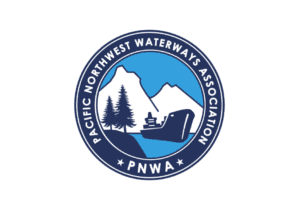
Federal criticism of the negative impact of hydropower dams and a call for affordable, clean energy options to aid restoration of restore wild fish to the Columbia River Basin is being challenged by a trade association with extensive interests in three Pacific Northwest states.
The Biden administration on June 18 announced creation of the Columbia River Task Force and release of a landmark report acknowledging the harm that federal dams have continued to inflict on Native American tribes in the region.
The interagency task force advances a historic agreement to work in partnership with tribes and states from the Pacific Northwest to restore wild salmon populations in the Columbia River Basin and develop a long-term strategy to meet the clean energy, transportation and other key needs of the region, the White House said.
Interior Secretary Deb Haaland said that as part of the federal government’s commitment to tribal nations that the Interior Department would continue to pursue comprehensive and collaborative basin-wide solutions to restore native fish populations, empower tribes and meet the resilience needs of communities across the region.
The announcement drew quick criticism from Neil Maunu, executive director of the Pacific Northwest Waterways Association (PNWA) and Inland Ports and Navigation Group, who said the agreement failed to involve navigation stakeholders and was not based on scientific evidence.
“Our concerns with the Biden administration’s actions are their excessive lack of transparency and the failure to account for all interests affected by this complex issue,” Maunu said.
The federal report issued neglects the interests of millions of residents including Native American tribes in the region that rely on the river system’s multi-use benefits for their livelihoods, bringing more insecurity to marginalized communities and negatively impacting local economies, PNWA said.
The trade association also said in a statement that is deeply concerned with the failure to involve local communities that live and work in this region.
This one-sided approach, which has not been transparent, according to the Waterways Association, dismisses the tremendous negative impacts on the future of this region’s economy and the environmental harm caused by the breaching of the Lower Snake River dams.
The current economy of the tri-state region is reliant on the Snake River and would be devastated by the negative impacts on river commerce, agriculture exports, recreation and tourism and power generation, they said.
PNWA urged the federal government to engage in consultation with all stakeholders. Any path forward must be founded on comprehensive study and consensus-based solutions that address the complex tradeoffs between salmon recovery, dam breaching and adverse environmental effects on the region, they said.
PNWA represents over 150 public ports navigation, transportation, trade, tourism agriculture, forest products, energy and local government interests in Oregon, Washington and Idaho.
The Interior Department statement stressing the federal government’s commitment to restore salmon and other native wild fish to the Columbia River Basin noted a historic agreement reached in December of 2023 to restore salmon populations, expand tribally sponsored clean energy production and provide stability for communities that depend on the Columbia River system for agriculture, energy, recreation and transportation.
